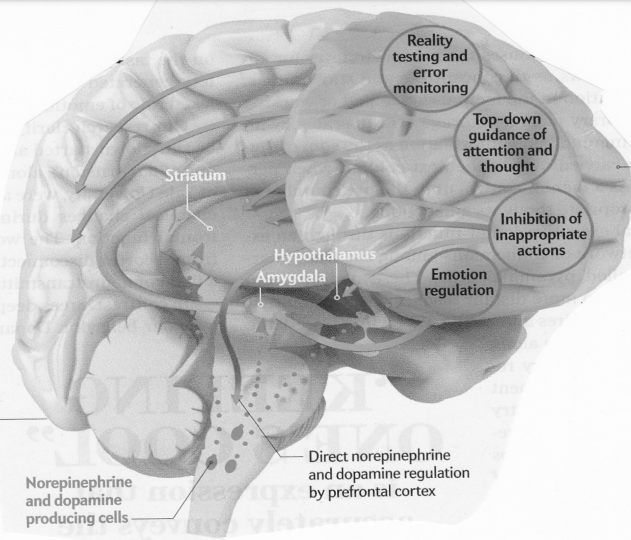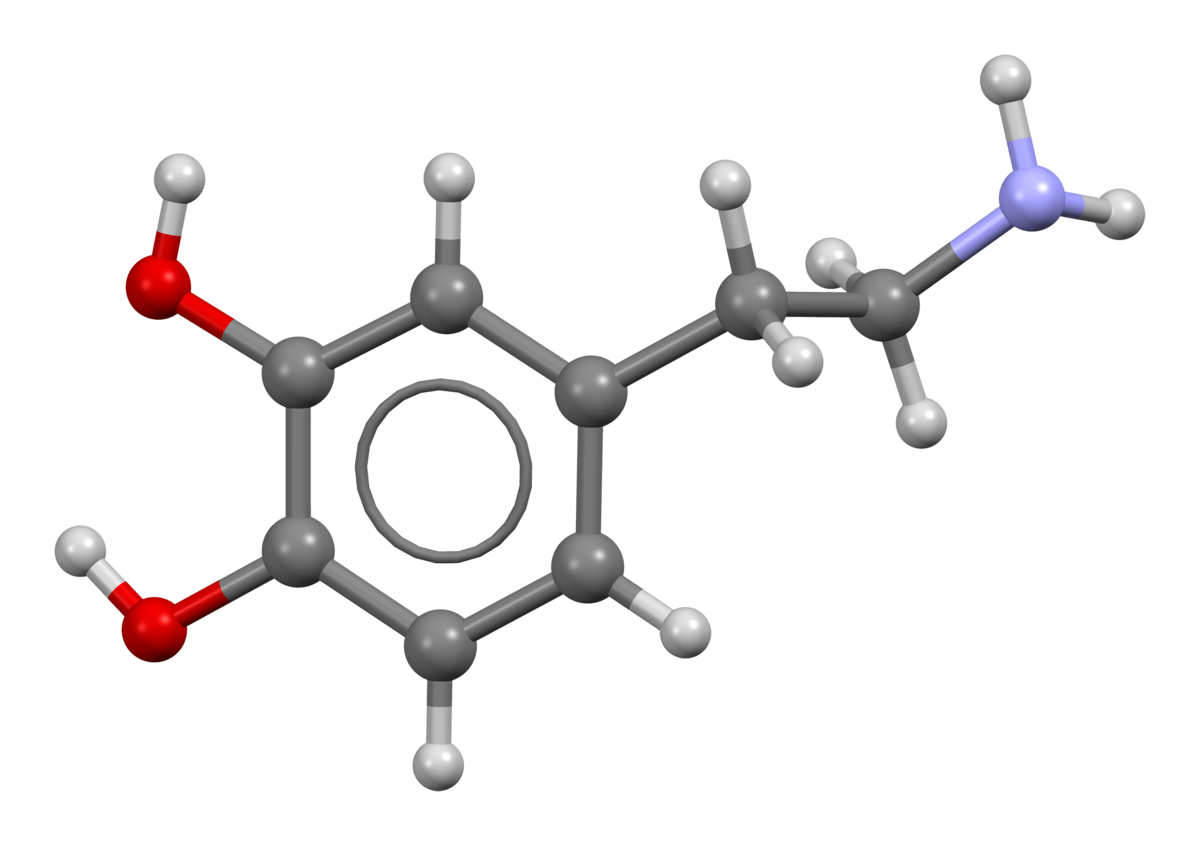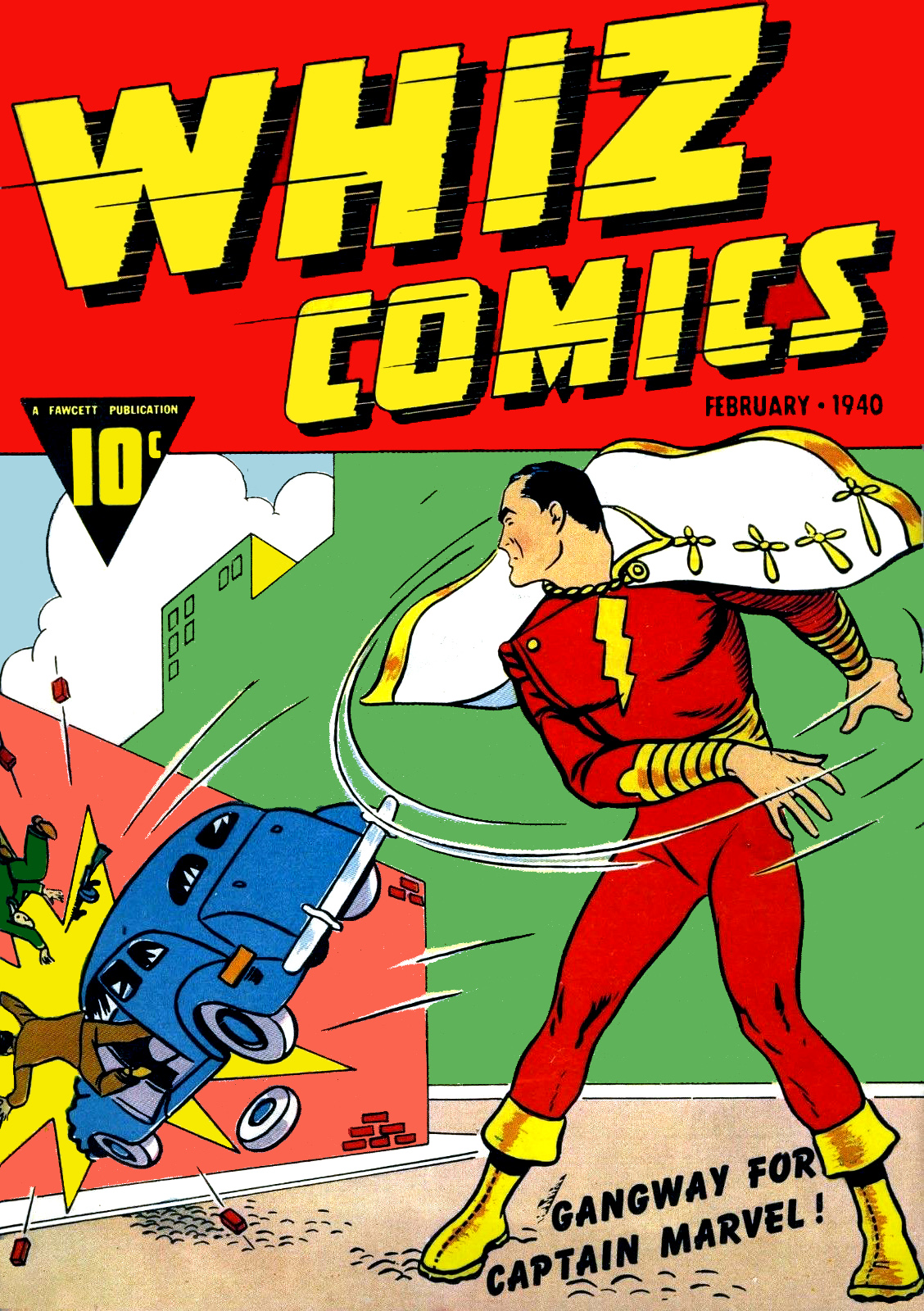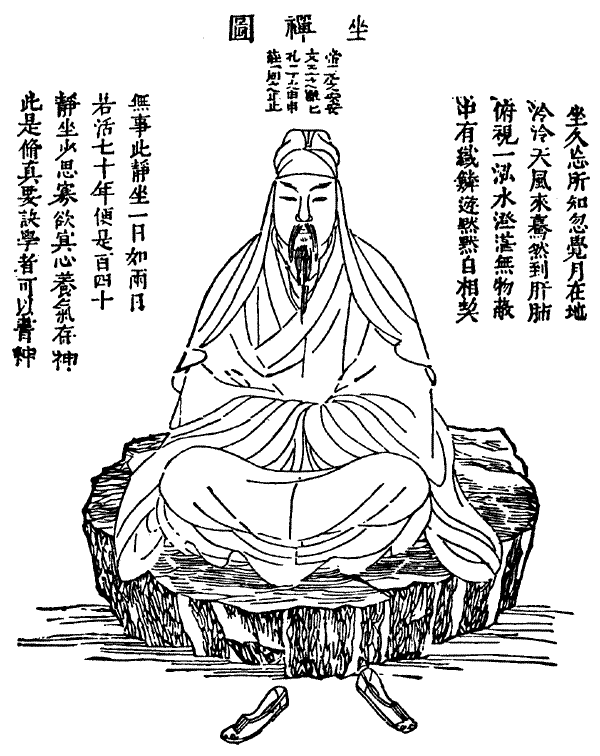ADHD As a Superpower
Low dopamine causes ADHD which is a disability but also a super power. Constantly seeking new stimulation can drive research and innovation, but what happens when a whole society is addicted to dopamine stimulation and we have no attention left to give?

Please scroll down for links below the transcript. This is lightly edited AI generated transcript and there may be errors.
Dr. Josh Stout 0:00
We all feel like we lack attention and we're desiring attention. And if you think about what ADHD is, is the inability to give attention. And now we're all living in a society where we don't give attention to each other because we're ADHD, which makes us want it more and drives the cycle so it gets worse and worse. As we as we lose our ability to give attention, we need it more and more.
Eric 0:24
We all are desperate for attention and no one is giving it.
It's still Friday, January 24th. Josh had two things burning holes through his brain that he needed to share. What's what's this? What's happening now?
Dr. Josh Stout 0:48
Again, this is directly from the Reddit discussions, and I want to post it there again. But I wanted to have something that was a little less high level neuroscience and a little bit more. You know, my experience as someone who has ADHD moving through the world and what it has done for me as well as to me and and, you know, the problems in the way I've sort of overcome them to sort of a little bit of a personal story of of, you know, what it is like. And one of the ways I often think about it is, you know, like the comic book superheroes, you have abilities that are different from other people. They often misunderstand it and you have a hard time integrating to the society and you have weaknesses to specific things that if you encounter, are sure to doom you. So, you know, it has a lot in there, and I think that's very specific. I think people will writing a superhero characters because of this kind of difference. You know, the first the first superhero, Superman, was about basically a Jewish immigrant coming to this country from a war torn Europe. I. And with Superman, with his superpowers. I get that. And that was, you know, sort of an original version. But there's been a lot of movement in the superhero world since the very first Superman. And they I a lot of it is the sort of the disaffected individual will who has a hard time integrating with the rest of society. The rest of society often does not understand them. They have these abilities that enable them to do things that other people can't do, but they're often, you know, not recognized for their value and their weaknesses are often such high level weaknesses that they can't function the way other people can. And so I think that's very much what many of the superheroes were written for.
Eric 2:48
X-Men. Yeah. All right.
Dr. Josh Stout 2:49
And and, and where you know, where I see some of these things, you know, many of the, you know, non neurotypical ways of being and I'm really focusing on ADHD. But I think they are they're all in different ways, not just a disability, but they're also an extra ability at the same time, which is why I didn't want to just just label ADHD as a disability. So what do I mean by extra abilities? I mean the ability to hyperfocus on something using the energy that you have with ADHD and putting it into something. And then when you jump to your next carrot that you're hunting, when you jump to that next goal, hyper focusing on that. Unfortunately, our modern society has really discounted broad knowledge and rewards specialization and I this this goes for every level of our education system. I've you know, I've talked to people who are in the admissions board for Princeton and they're saying we are not looking for well-rounded candidates. We are looking for the most extreme candidates that we can find. So rather than someone who is a blend of lots of different abilities, we're looking for a salad of different ingredients. So we want the most cherry, cherry and the most, you know, crunchy lettuce. And we want to put all these things together into a large, diverse salad, but not a diverse individual.
Eric 4:16
That makes me very unhappy.
Dr. Josh Stout 4:18
It I see their point, but it is definitely the direction that the entire educational and and, you know, corporate system is aimed at. Because if you are a part of a larger machine, you should be the most functional piece you can be in that machine and that functional piece should be as specialized and do one thing really well and shouldn't try and do a lot of other things. And this works really badly for people who are ADHD.
Eric 4:44
What about people that are just human beings instead of parts of a machine?
Dr. Josh Stout 4:47
Well, this is this is also where I wanted to go. I mentioned in the last episode that we are all becoming more and more ADHD as we're lowering our responses to dopamine with our lower attention span and the, you know, the flashing banner ads. We're all moving in this direction where we're requiring ourselves to be more and more specialized while at the same time work where individually having a fairly wide area of knowledge, we access the whole Internet. We know lots of different random facts from all of different places. You know, my kids are growing up watching YouTube videos on the history of the world from Africa to China. They knew the mythologies from many, many different cultures. And yet, you know, they still don't do all that well in school because they're having a hard time focusing and specializing in one particular area and doing really well on that one exam. And yet they know vastly more than many of their peers because no one is trying for generalized knowledge. It's not the goal, it's not what we're doing. So the the the the abilities that people with ADHD have, unfortunately, are the ones that are being specifically punished by modern society while at the same time modern society is turning us all ADHD. And so this, you know, this really amounts to a lot of the the, the issues we had we were talking about this earlier, Eric, where we were talking about how we all feel like we lack attention and we're desiring attention. And if you think about what ADHD is, is the inability to give attention. And now we're all living in a society where we don't give attention to each other because we're ADHD, which makes us want it more and drives the cycle so it gets worse and worse. As we as we lose our ability to give attention, we need it more and more.
Eric 6:35
We all are desperate for attention and no one is giving it.
Dr. Josh Stout 6:38
And so you are asking about ways out of this. And I somewhat flippantly mentioned caffeine, but these are just ways of treating symptoms. But, you know, we really we really need to respect what we can do. I think the Internet does provide us with both a more ADHD rewards. And so we're running in different directions all the time, but also the ability to make connections. And those kind of connections, I think are what really can save us if we have connections between disciplines. Connections between ideas. And this is why I started my podcast in the very beginning. I was originally thinking about this. The original title was Seducing Sidney. Yes, I remember because the guy was named Sidney. That was her secret name. Yeah. And I thought of her as an ADHD character who knew all of these different things. But had a hard time focusing on one thing at a time. And I thought if I put out a podcast about everything, I would catch Sidney's attention and Sidney might like me with Sidney being a metaphor for the Internet as a whole and just the way we now live, where it's just little fractured pieces of information. People do like going down a rabbit hole for a long time. It's what I is very good at sending you down a rabbit hole of new information you've never seen before. But the A.I. will start hallucinating as well, and this is something that I know I'm prone to with ADHD, is that not only do I enjoy learning new things, I come up with hypotheses, sometimes with not complete information, and I will jump to conclusions and then start, you know, building a new world on that. Sometimes they hold up, sometimes they come up with something that no one else has ever seen before because they can't make that jump. That's the superpower. But it all goes wrong when, you know, it turns out that there's something everyone else knows, but they've left it within the speciality. You know, people who are non-specialists don't know the problem that, you know, they can see and none of the rest of us can. And so, you know, we are again, we are moving into a world which is making it more and more difficult for the people in the world we are creating.
Eric 8:49
It's a vicious cycle.
Dr. Josh Stout 8:50
It is a bit of a vicious cycle. But I wanted to emphasize some of the things we can do is, again, making these connections. You know, the other thing I do is, in addition to caffeine is I do meditation and it definitely does help. And that is not just treating the symptoms the way the caffeine does. That's actually resetting my brain and making things so that I can focus because I'm practicing focusing things. You practice, you do get better at it. And then the other thing is, is when you want to learn something and you need to stimulate your brain, go and do that thing. Just just have a good time. You know, sometimes you just want to play Candy Crush or whatever. Game on your phone. I get that too. But if you want to go learn something, go do it. It's it's out there. It's just waiting for you. If you discover something that just piques your interest in a news article, just chase it down. I don't. I don't think it will help you necessarily, but you'll learn something new and you might make connections that will then open new doors for you because you do have an ability that not everyone has. People are all trying to be focus, focus, focus down their own rabbit hole and they never leave.
Eric 9:59
So I have a question. Sure. The both of us have experienced the benefits of and the mysteries of meditation. How how is it harder or easier? How does ADHD affect learning and practicing meditation? Hmm.
Dr. Josh Stout 10:16
Interesting question.
I would guess that it makes it difficult at the beginning. I mean.
Eric 10:22
You have ADHD and you meditate. Yes. Yes. You just don't remember the beginning.
Dr. Josh Stout 10:27
Well, I'm only one of me. Yeah. As a as a scientist, it's difficult for me to make generalized studies on anecdotal experience. Yeah, so anecdotal. Anecdotal. Yeah, I do find it helps me focus. I, I go deeper into my thoughts. I'm able to come up with better hypotheses on my limited information. And when.
Eric 10:49
You're when you're meditating on a topic rather.
Dr. Josh Stout 10:51
No, no. The meditation gives me the ability so that when I then go out into the world, I can see things more clearly and I can I can focus on them better.
Eric 11:04
So the meditation helps you tune the hyperfocus that ADHD gives you an inclination towards.
Dr. Josh Stout 11:12
Exactly. And it allows me to stay on a topic long enough that I can really see. And I don't just draw conclusions.
Eric 11:20
So combining your your metaphors here, you're saying that the the meditation helps keep that carrot closer and in focus.
Dr. Josh Stout 11:28
Exactly. Yeah. So it is it does some of the same things that the medications are designed to do, but without the side effects and without the mixed message. Right. So the medications are both motivating and demotivating at the same time, someone who is already both motivated and demotivated, whereas meditation is just about focus.
All right. I think that's all I wanted to really say today. Yeah. All right.
Eric 11:52
As always, very, very interesting. Folks, please let us know if this does anything for you or if you have thoughts on this, because this is an ongoing discussion. And Josh has been looking into this all his life and he's going to continue.
Dr. Josh Stout 12:05
So, yeah, again, I just wanted to point out that I I'm not just speculating about this stuff. I am a neurophysiologist. I do study dopamine. And I think about it in the context of both myself and my students all the time. And I see how I try and motivate my students, not exactly as like I'm experimenting on them, but that I see the same kind of things where I offer them various motivations, points on something a grade, and I do it in a specific way to keep them focused. And the the further away the reward is from where they are, the less likely they are to do it. So that if I say, here's a textbook, I want you to learn this textbook and then I will give you an A, not a single student will open that textbook because that carrot is now too far away. It's a whole book in the past. It's a whole book away. Students would have done it. And this is what all the professors say that students no longer do well, because they won't open their textbooks. And that is basically how professors give exams. They're like, I will test you on these chapters. I have lectured on them, now I want you to study them. And then anything on those chapters is fair game on the exam. And I found that to be not successful with the way modern students are. And so rather than trying to change reality, I trying to accept reality again. The meditation really helps for accepting reality, and I try to give really obvious goals to my students. So I say, here are some essay questions you will need to think about from my lectures, and I will put those exam questions on the exam. Here are vocab words in my lectures. I will put the exam on those vocab words and I get it. I get a range of responses, but I have fewer students fail because there there's always a certain percentage of people who just give up when they're faced with a textbook and no direction. But if you tell students what they want, what they need to know for the exam, say these are the this is the information that I will be testing you on, They can focus on it. Now, unfortunately, this does exactly what I was right. Worried about. Now, now, now that now they don't know the whole textbook. They just know this one thing.
Eric 14:22
I'm only studying what you told them is important. Nothing else is going to be looked at.
Dr. Josh Stout 14:26
So what I try and do is I make questions, particularly the essay questions that have them practice connecting different ideas.
Eric 14:34
So we're not going back to the like the beginnings of the progressive model of education. Is this not?
Dr. Josh Stout 14:39
Well, it's what I'm trying to do, but I'm a lonely voice in the wilderness. So I take the general model of specializing and focusing, and then within that I create topics that at least some students might recognize are connected to each other. And I do this between my classes as well. So I'll be teaching a human evolution class and a human physiology class, and students who are in both of them will start to see that they are related. And so the information has meaning. What happens today is even when students do study for the exam, they don't remember it the next year. And this is across the board and with basically every student out there. And so I'm working myself to understand myself, to understand the students, and then to understand how I can use this knowledge to teach them better.
Eric 15:27
How you can use dopamine and ADHD.
Dr. Josh Stout 15:29
Oh, exactly.
Eric 15:30
I just have to say, I don't think there's anything wrong with experimenting on your students.
Dr. Josh Stout 15:33
And not experimenting on them. I tried.
Eric 15:36
Different things. You have told me stories of them experimenting on you.
Dr. Josh Stout 15:39
Well, you think it's all exactly. Well, I tried different things to see how they will work.
Eric 15:43
They had you in a corner. Yeah. All right. Anyway. All right, folks, this is fascinating stuff. I hope you're enjoying it, too. Until next time.
Theme Music
Theme music by
sirobosi frawstakwa


















